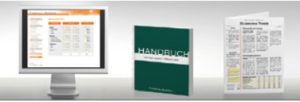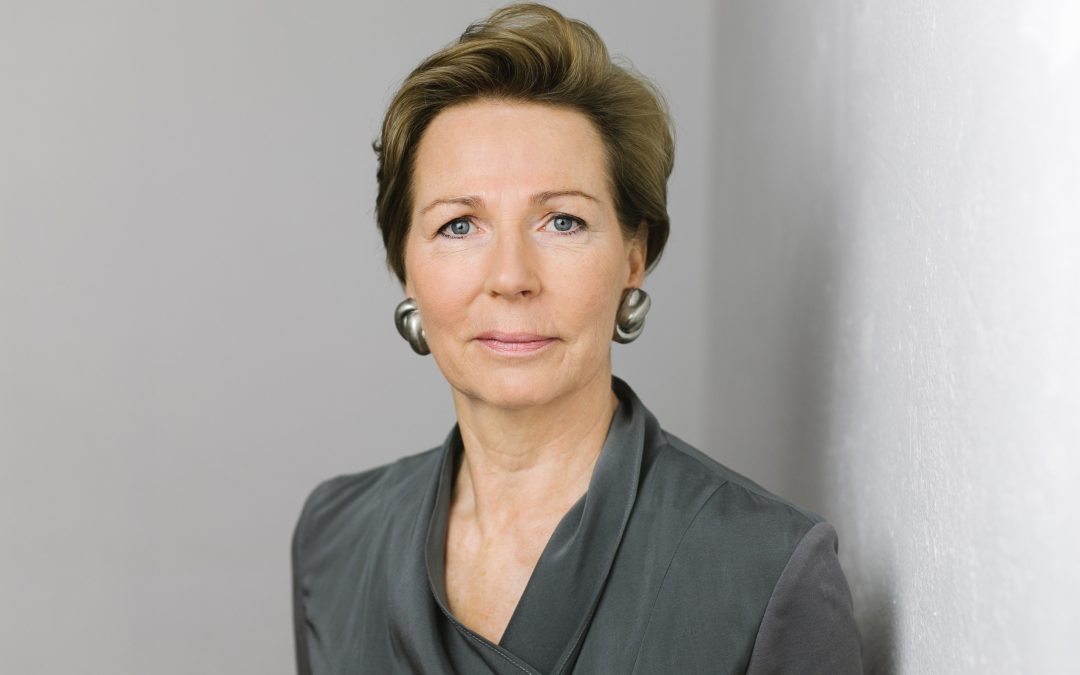Veronika Lammer was Retail Research Manager at Raiffeisen Bank International AG in Vienna and retired there in the summer of 2021. She talks to Fondsfrau Anke Dembowski about how she is transitioning into her new professional life and what she thinks about the women's quota.
Veronika, you've had a great career in the financial industry. Tell us what you did in your last station at Raiffeisen Bank International?
The great thing about my career was that I was able to learn about so many different topics in depth in terms of content: from equity analyst to market monitoring to portfolio manager, economist, interest rate and currency analyst, and manager. At Raiffeisen, I was head of department for economic analysis of emerging markets, quantitative analysis and asset allocation since 2008. For the last three years, I was Retail Research Manager and was in charge of research for the Austrian Raiffeisen sector. In doing so, I gave substantive presentations on markets, economics and so on, for example.
How do you see the industry? Is it really as male-oriented as many think?
All in all, banks are also very male-dominated these days. To see that, you only have to look at the pictures of the board members - a lot of suits!
What's the problem? Why are there so few women on the boards of banks?
The image of the bank manager in Austria is so male-dominated that women rarely fit in. But it is precisely female energy and female intellect that would bring the necessary diversity to this industry in transition. After all, there are enough studies to show that companies are more innovative, stable and profitable when there are a greater number of women in key management positions. Some board members seem to hope that this doesn't filter down to shareholders and supervisory boards.
Austrian banks do a lot of business in Eastern Europe. Things look quite different there...
Yes, there are more women in top positions in the banking sector in Eastern Europe. But women already had equal rights there under communism and they do their job very well. And our managers in Vienna also respect the women in Eastern Europe. That shows that it is possible!
What development have you seen in terms of diversity during your career?
I started working in the mid-80s. At that time, there was still the "bank clerk". In that respect, things have changed quite a bit. However, I also observed quite a few ups and downs during that time. When the banks were doing well economically, they hired many young women and offered them opportunities for advancement. When the economic situation became more difficult, the women were in the second and third rows.
And now, what is the current situation?
I notice that a new wind has risen in the banks in this country. Efforts are being made to place greater emphasis on diversity. I think that came about as a result of the sustainability discussion; that has led to a certain pressure, and it doesn't seem to work without pressure.
What can companies do to better promote women's careers?
I think that can only be done with fixed quotas. They are necessary because even if the board wants more women in management positions, there is often still resistance in the lower management ranks. The quotas must be mandatory and must also be included in the bonus. Only in this way will it not remain with individual model women, but rather several women will get into management positions at the same time. They can then support each other. Otherwise, a single woman is often the outsider, and the men mingle among themselves. I think that a quota of at least 30%-40% is necessary for this, which should also be achieved quickly, otherwise it is very lonely for the few women at the top.
What else can companies do besides setting a fixed quota for women?
It's important not just to say that you'd like to have more women in management positions, but that you really want to. Because when women get into management positions, the climate in the company changes, it becomes more open, more business-oriented and more cooperative. And that's exactly what you have to strive for. Pseudo-actions are not enough. Women notice this and then don't even want to work for the company.
What should policymakers do to better promote women's careers?
The quota regulation for supervisory boards, as we have in Austria and Germany, is already a first step. I would prefer 40% to 30%, but 30% is a start. Austria should also introduce a quota for board members with a time limit for implementation. I think the initiative in Great Britain with the "Woman in Finance Charter" is very good. A 5-year review has just been carried out there, and as a result the charter has already achieved a lot there, both on the boards of directors and on the supervisory boards.
How does it feel to be "retired" after an active professional life?
I interpret my pension income as an unconditional basic income, and that gives me a lot of freedom for my other projects. I enjoy that. I also go to the gym more often now, and participate more in cultural life, go to the theater even more often, and so on. Professionally, I concentrate on my company Financial Experts.

What is it about?
It's all about analysis and training. The focus is on investment training, a seminar on the interrelationships between economics and financial markets in the context of a computer simulation game. It is based on the method of learning by doing. I have been offering this with great success since 2004, and I am now building up new customer groups for this.
Would you now also be interested in supervisory board positions?
Yes, of course - that too! Let's see what comes up.
What do you want to do now? What are your personal plans?
What I'm doing is quite a bit, and of course I'm still committed to Fondsfrauen. This also includes my commitment to "Fit for Finance".
What is being done there?
This is an initiative for more financial education for women as part of a working group of Fondsfrauen Austria. The lectures are free of charge for women's networks. Companies that want to educate their women in finance donate to an organization that supports women when they book a lecture. In return, the companies are allowed to record the seminars and make them available on their internal platform. RBI, for example, booked "Fit for Finance" in German and English for its employees in Austria and we had about 150 participants in the workshop series. And you can tell that women find it much easier to ask questions when they are among themselves - especially when it comes to financial topics.
What is your part in it?
Now I have more time for such volunteer commitments than before. I lead the working group, take care of the organization and hold the first workshop in the series with a colleague. I also stand by if someone drops out at short notice.
Is the financial industry actually a good fit for women?
Yes, the financial sector offers many suitable and super-exciting professions for women. On the one hand, this applies to consulting. There, women can often respond better to their counterparts than men and also enjoy more credibility with customers. But the other professions are also very suitable for women - from analyst to structurer. Finance is attractive to women, and I would think it a shame if women weren't interested in this sector. The jobs here are challenging, interesting and well paid. From my experience, I can say that women do these jobs very well. Women have always been able to do business, women are also good mathematicians - everything else is just talked into our heads.
Thank you very much for the interesting interview, Veronika!
Foto: Interfoto



